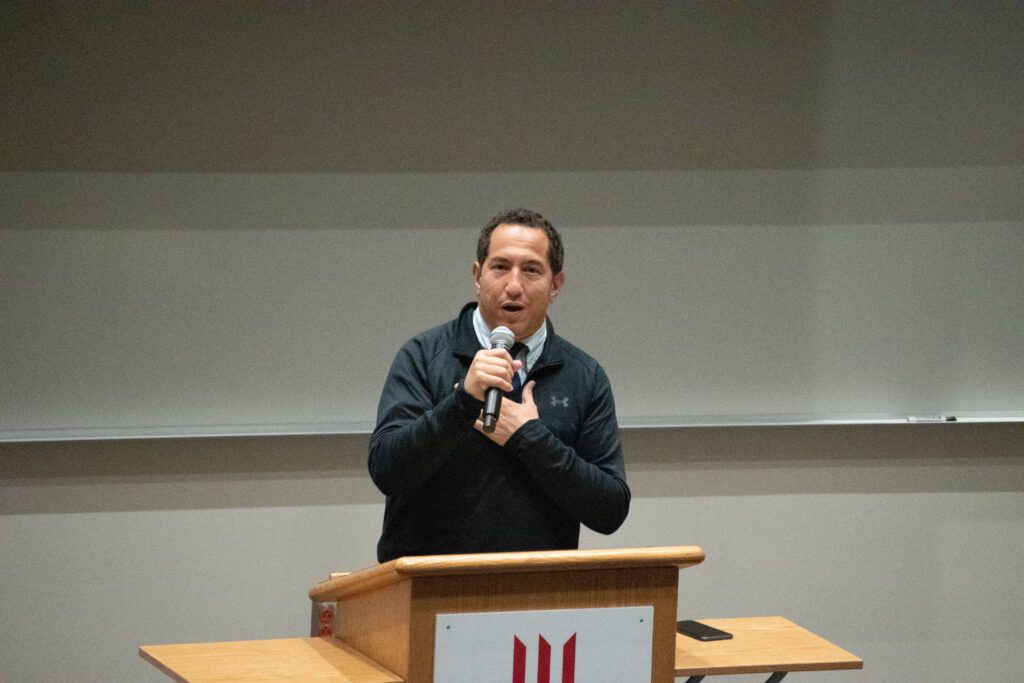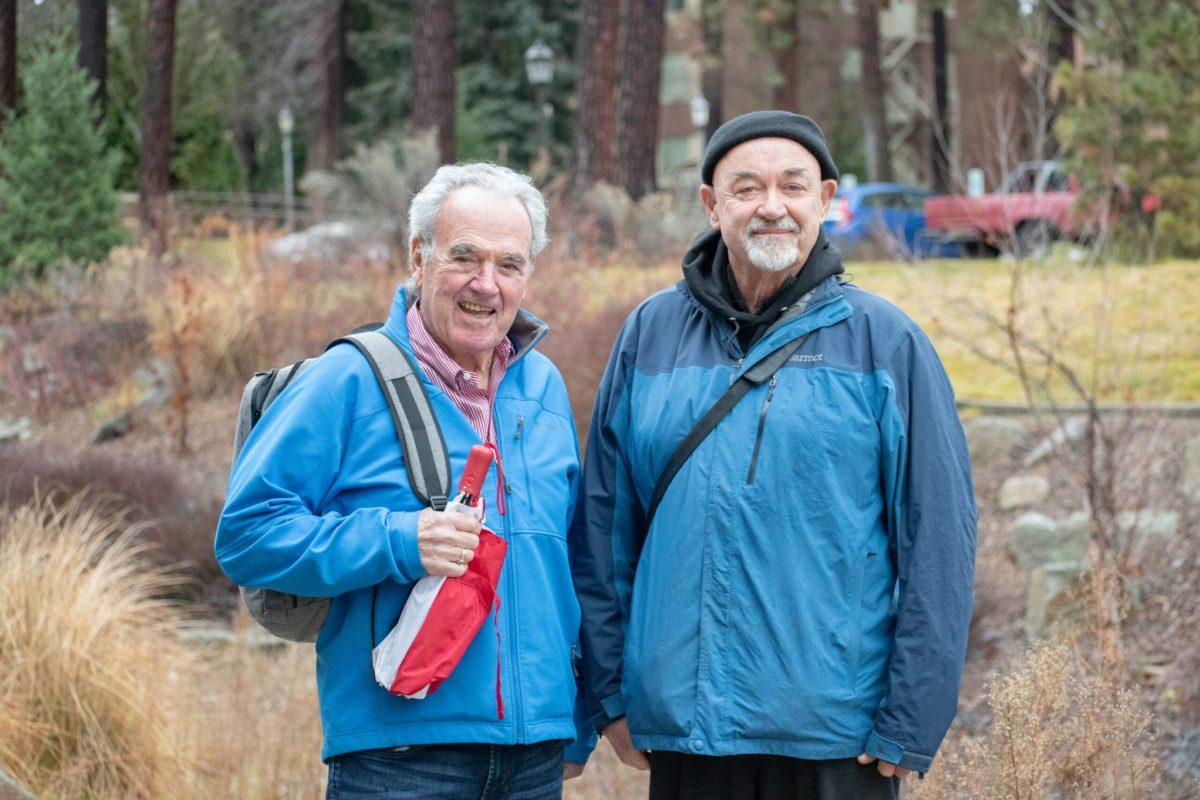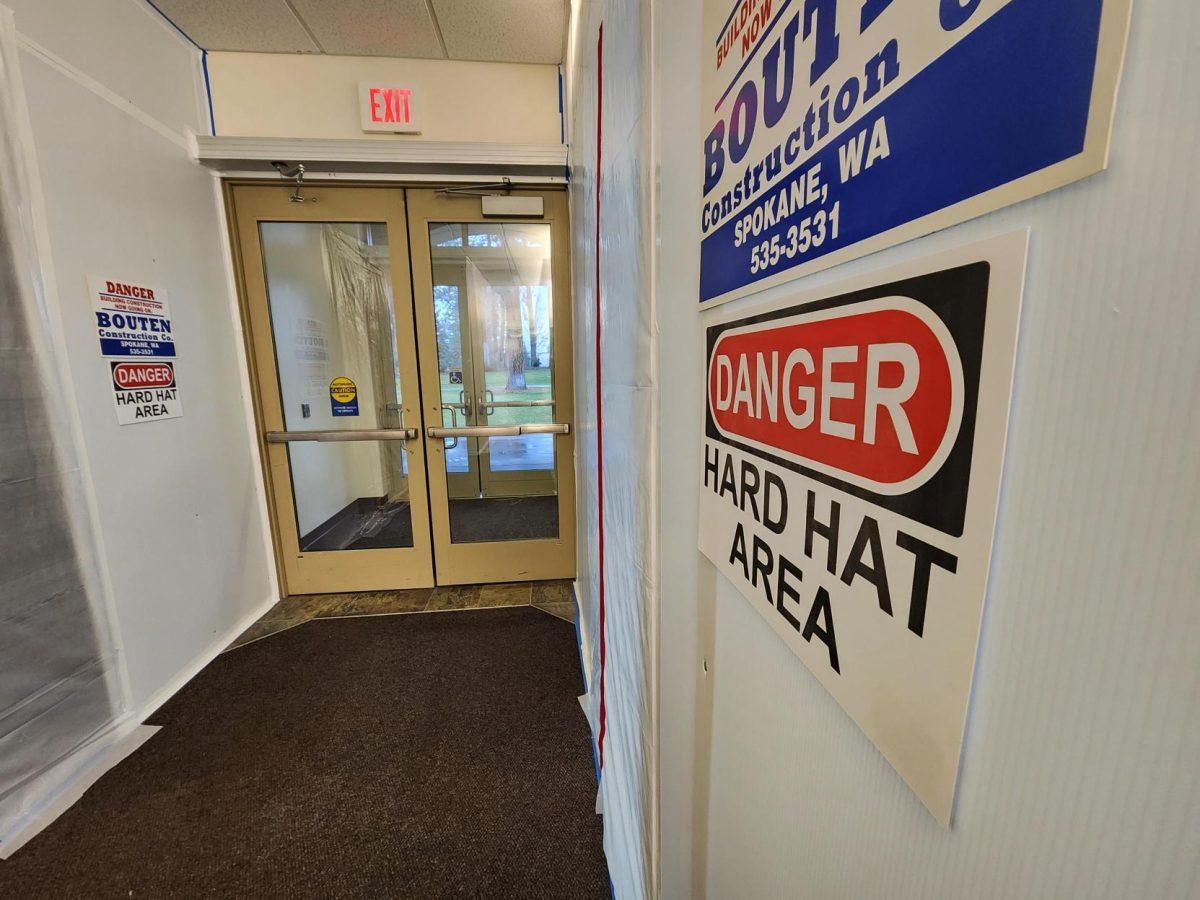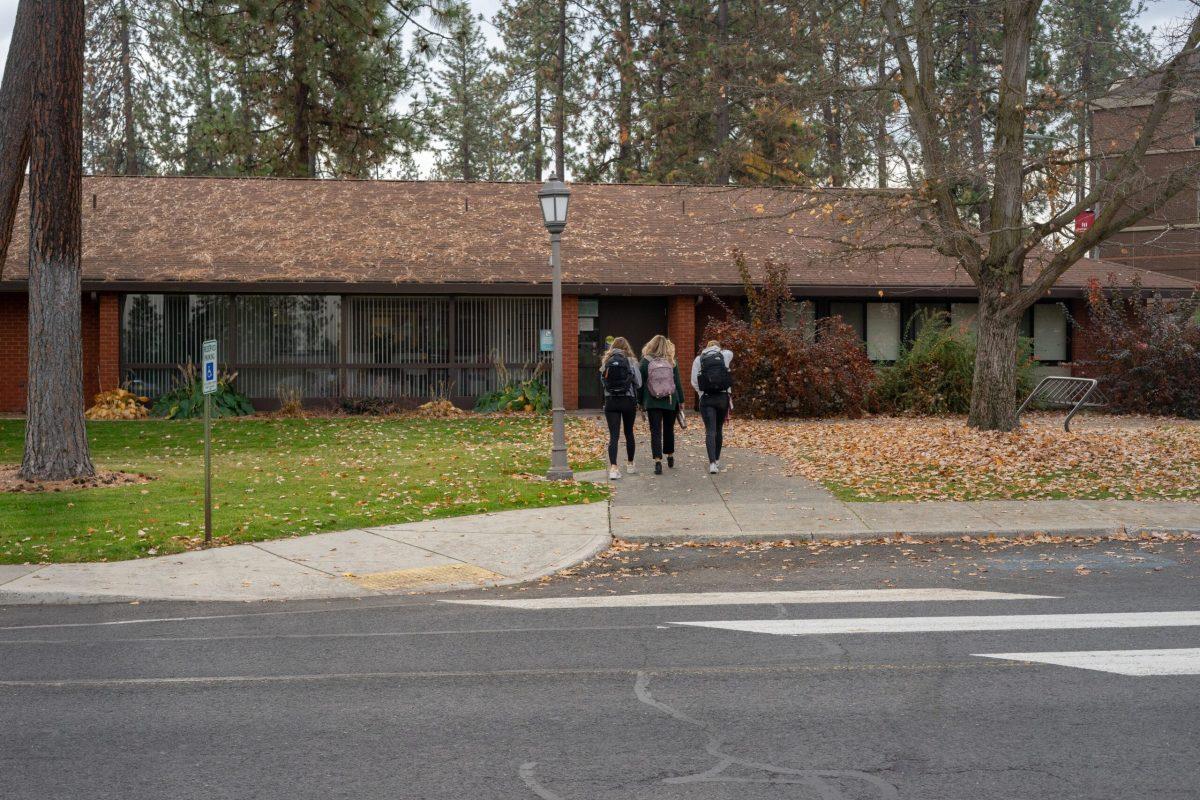
On Oct. 5, Alexander Heffner gave a talk about democracy, discourse and social media. The event was at 7 p.m. in Weyerhaeuser’s Robinson Teaching Theater (RTT).
Heffner is the host of the PBS show “The Open Mind” which has featured guests such as computer scientist Joy Buolamwini, journalist and news editor Susan Smith Richardson and best-selling author James Patterson. “The Open Mind” has been on the air since 1956, when Heffner’s grandfather Richard Heffner created and hosted the show.
Alexander also revised and updated “A Documentary History of The United States” to include recent events such as the COVID-19 pandemic. It was originally written by his grandfather.
Bert Emerson, English professor and head of the honors department, was a driving force in bringing Heffner to campus. Emerson said, “[Heffner’s] visit will appeal to students and community members across a range of disciplinary perspectives. It will add a new dimension to Whitworth University’s ongoing conversations about civil discourse.”
During the talk, Heffner discussed civil discourse and ways to achieve it. He started by defining the word ‘civil.’ He said ‘civil’ goes back to the word ‘civilization,’ which references a unique way that a group acts. He explained that to promote civil discourse, we need to be able to cultivate a space that promotes learning and dialogue and improves things over time.
While on this subject Heffner added that the “…biggest obstacle to civil discourse is bigotry.” He warned people to not stay with just one group of people, and rather try to form “collective” ideas with many different types of people in order to create change in the world.
During his speech, Heffner also discussed different micro- and macro-level solutions that could improve civil discourse, including informed literacy. One micro-level solution is for individuals to read informed, accurate sources. He discussed the problems with getting news from social media sites, especially Twitter, because it is practically impossible to share complete, accurate stories with a character count.
He also gave examples of macro-level changes the country could work on. He explains that the Supreme Court of the United States (SCOTUS) only has around a 15% approval rating, which could use improvement. Heffner then questioned: how do you preserve decency when the law of the land is decided by a minority? The solution he proposed is an act of Congress to update certain rules, such as how long a person can be appointed as a justice.
Another major point Heffner discussed was how to be intellectually honest, which is extremely important for having a civil society. He gives a few action steps, such as not accepting ideas just because one person said them, relying on facts and looking for context as well as causation that could inform someone’s goals in communication.
Heffner closed out the night by answering questions from the audience. One audience member asked about the correlation between soft skills and intellectual honesty. Heffner responded with the idea that emotional maturity is not taught but is needed, along with civil maturity and intellectual honesty, to form a civil society.












 Spokane?
Spokane?